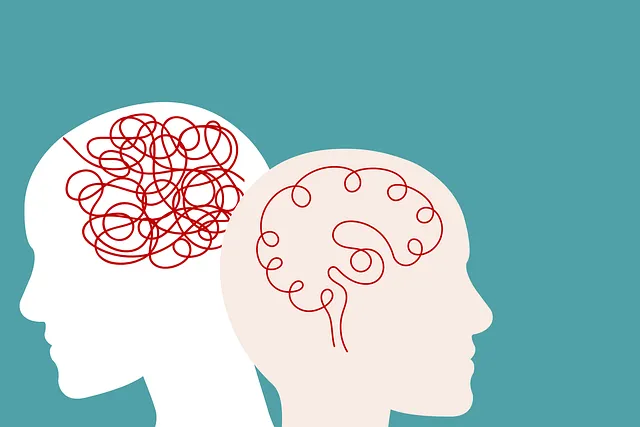Kaiser's Crisis Intervention Team (CIT) training program in Parker is recognized for its comprehensive, multifaceted approach. They combine theoretical knowledge with practical experience, emphasizing emotional intelligence and advanced communication strategies. The program ensures competent therapists through rigorous assessments and a commitment to continuous learning. Their holistic support system promotes both professional growth and personal resilience, making Kaiser's CIT model an exemplary standard for crisis intervention services.
In today’s complex social landscape, effective crisis intervention teams (CITs) play a vital role in supporting individuals facing severe mental health crises. This article explores the critical components of CIT training programs, highlighting unique approaches like Kaiser’s therapist training methodology. We delve into evaluating therapist competence through real-world scenario assessments and emphasize the ongoing support needed for continuous improvement. Understanding these key elements is essential to ensuring that crisis intervention therapists, including those at Kaiser, are well-prepared to make a positive impact.
- Understanding Crisis Intervention Teams: Their Role and Importance
- Key Components of Effective Crisis Intervention Training Programs
- Kaiser's Approach to Therapist Training: What Sets Them Apart?
- Evaluating Therapist Competence: Assessing Skills in Real-World Scenarios
- Continuous Improvement: Ongoing Support for Crisis Intervention Therapists
Understanding Crisis Intervention Teams: Their Role and Importance

Crisis Intervention Teams (CITs) play a pivotal role in supporting individuals facing severe emotional distress or crisis situations. These specialized teams are designed to provide immediate, targeted assistance, ensuring that folks receive the help they need as quickly as possible. CITs typically comprise of trained professionals from various disciplines, such as mental health therapists, social workers, and law enforcement officers. Their primary goal is to de-escalate high-risk scenarios, offering a calming presence and expert guidance.
For individuals seeking support, having access to effective crisis intervention can be life-changing. Organizations like Kaiser, known for their comprehensive healthcare services, often employ and train highly skilled therapists who contribute to these teams. The availability of good therapists, as evidenced by the success stories of Kaiser’s patients in Parker, highlights the impact of specialized training programs. These initiatives not only equip professionals with crisis intervention guidance but also foster self-care practices, which are essential for preventing burnout and ensuring long-term support for both the helpers and those they serve.
Key Components of Effective Crisis Intervention Training Programs

Effective crisis intervention team training programs are multifaceted, encompassing a range of key components to equip individuals with the skills needed to support others during traumatic events. First and foremost, these programs emphasize Communication Strategies. Trainees learn active listening techniques, non-verbal cues interpretation, and empathetic expressions that foster open dialogue and build trust in high-stress situations. This is crucial, especially when dealing with individuals from diverse backgrounds, ensuring every voice is heard and respected.
Additionally, the training delves into Emotional Healing Processes, teaching participants about trauma-informed care and resilience building. By understanding the stages of emotional healing, team members can provide appropriate support, whether it’s facilitating coping mechanisms, offering validation, or simply being present. Programs that integrate these elements, like those offered by reputable institutions such as Kaiser, where skilled therapists in Parker are trained to handle complex situations, ensure that crisis intervention teams are well-prepared to navigate the emotional landscape of a crisis effectively.
Kaiser's Approach to Therapist Training: What Sets Them Apart?

Kaiser’s approach to therapist training sets them apart from many other programs due to its holistic and nuanced design. Unlike traditional mental health education programs that often focus solely on theoretical knowledge, Kaiser emphasizes the practical application of skills through real-life scenarios and hands-on experiences. This immersive training ensures that therapists are well-prepared to handle diverse client needs in high-pressure situations.
One of the key differentiators is their focus on Emotional Intelligence (EI). Kaiser integrates EI development into every aspect of the training, equipping therapists with the ability to understand and respond effectively to clients’ emotional states. This approach, combined with rigorous Mental Wellness Coaching Programs Development, allows Kaiser’s graduates to not only provide excellent care but also foster meaningful connections with those seeking help. Moreover, their commitment to continuous learning and improvement ensures that therapists stay up-to-date with the latest research and best practices in mental health, making them truly exceptional professionals. Does Kaiser have good therapists Parker? The evidence suggests yes, thanks to this comprehensive and forward-thinking training model.
Evaluating Therapist Competence: Assessing Skills in Real-World Scenarios

Evaluating therapist competence is a crucial aspect of crisis intervention team training programs, ensuring that professionals are equipped to handle real-world scenarios effectively. At Kaiser, for instance, Parker-based therapists undergo rigorous assessments to measure their skills in high-pressure situations. These evaluations often involve simulated crises, allowing trainers to gauge how well therapists maintain composure, employ appropriate communication strategies, and facilitate emotional well-being promotion techniques.
By assessing therapists in real-world simulations, Kaiser can identify areas for improvement and ensure that its crisis intervention teams are prepared to handle a diverse range of mental health emergencies. Such assessments not only enhance the team’s collective Mental Health Awareness but also foster better collaboration among members, ultimately improving patient outcomes.
Continuous Improvement: Ongoing Support for Crisis Intervention Therapists

Continuous improvement is a cornerstone of effective crisis intervention team (CIT) training programs. To ensure therapists stay at the top of their game, regular self-awareness exercises and ongoing support mechanisms are vital. This includes opportunities for peer review, professional development workshops, and access to resources that foster growth in both clinical skills and emotional resilience. At Kaiser, located in Parker, therapists have access to these resources, enabling them to excel in serving individuals experiencing crises.
The program encourages a culture of learning from each other and leverages the power of social skills training alongside proven Mind Over Matter principles. These combined approaches not only enhance the quality of care but also contribute to the personal development of CIT members. Such holistic support is critical in managing high-stress situations and ensuring therapists can effectively assist those in need, making Kaiser’s program a model for others to follow.
Crisis intervention team training is a vital component of ensuring effective support for individuals in distress. By understanding the key components and innovative approaches, such as Kaiser’s therapist training methods, we can enhance the competence and resilience of these teams. Regular evaluation and continuous improvement initiatives are essential to maintain high standards, especially when addressing real-world scenarios. With the right training and ongoing support, crisis intervention therapists, like those at Kaiser, can make a significant difference in folks’ lives, providing much-needed assistance during challenging times. Does Kaiser have good therapists in Parker? The evidence suggests so, thanks to these comprehensive training programs.






